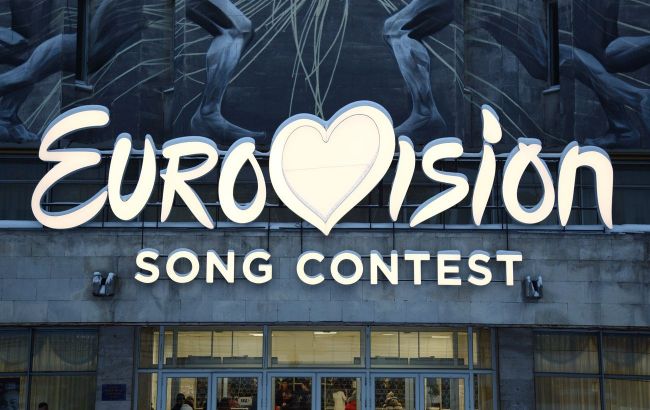Most expensive Eurovisions in 20 years: Ukraine among top spenders
 How much does Eurovision cost? Country budgets and Ukraine's place among the most expensive shows (photo: Vitalii Nosach, RBC-Ukraine)
How much does Eurovision cost? Country budgets and Ukraine's place among the most expensive shows (photo: Vitalii Nosach, RBC-Ukraine)
Eurovision is not just a music show; it is a large-scale cultural project that requires significant financial investment. Over the past two decades, host countries have spent anywhere from several million to over a hundred million euros organizing the contest.
RBC-Ukraine reports on how much different countries have spent hosting Eurovision in the last 20 years, including this year's contest in Basel, Switzerland.
Basel 2025: Third highest costs
Switzerland is hosting Eurovision for the first time in 36 years. Basel decided not to cut corners. The total budget for the contest was about €62 million, making it the third most expensive Eurovision in history.
The Canton of Basel-Stadt allocated roughly €40 million after a referendum where over 66% of residents supported the funding. The rest came from the Swiss Broadcasting Corporation (SRG SSR), the European Broadcasting Union (EBU), and sponsors.
The local government spent the most on upgrading the infrastructure of the St. Jakobshalle Basel — €14.5 million. About €8 million was allocated for security and cybersecurity. Another €2 million went to transportation and logistics. The budget for various city events and volunteer programs exceeded €5 million.
The expected economic impact from the contest is about €65 million, thanks to high hotel occupancy rates (up to 95%), increased tourism, and active local businesses.
Baku 2012: Eurovision as a symbol of oil wealth
Azerbaijan set an absolute spending record in 2012. After Ell & Nikki's victory, the government turned Eurovision into a geopolitical project.
Within just a few months, Baku built a new Crystal Hall on the Caspian Sea shore. Total costs were estimated at around €160 million, with €100 million spent on the arena alone.
Moscow 2009: Imperial scale with disappointing results
In 2009, Russia generously spent about €38 million from the state budget on Eurovision. Officially, funds went to the arena, stage, technical support, and security. But the contest became a prime example of a typical Russian approach: lots of money but mediocre results.
The event took place at the outdated Olimpiyskiy multifunctional complex, where one of the most expensive stages of that time was installed. Despite the huge spending, the show appeared mediocre, lacking a clear idea or visual breakthrough. The media hinted that a significant part of the budget might have been simply misused.
Tel Aviv 2019: Netta's win brought financial challenges
After Netta Barzilai's 2018 victory, Israel was granted the right to host Eurovision for the second time.
The public broadcaster KAN, responsible for organization, sought government support and received a loan of €16.5 million. Total costs reached about €28.5 million, one of the highest among recent contests, even though no new infrastructure was built — the arena was arranged at the Tel Aviv Expo pavilion.
Most of the budget went to enhanced security, logistics, delegation transportation, and creating a fan zone by the sea.
Although the show received high marks for production, there was domestic criticism. The public was upset about budget spending amid social issues.
Still, Israel gained in terms of image, as the contest ran flawlessly, brightly, and modernly, while attracting thousands of new tourists.
Kyiv 2017: Challenging but worthy
Following Jamala's historic 2016 victory, Ukraine earned the right to host Eurovision for the second time in its history. Kyiv approached the task with enthusiasm, but preparations quickly became a real challenge.
The process was marked by numerous staff reshuffles: producers changed one after another, key team members resigned amid internal conflicts and suspicions of non-transparent procurement.
Despite the chaos, Eurovision 2017 took place and turned out quite impressive. Instead of building a new arena, they decided to upgrade the International Exhibition Center (IEC), saving millions. Total spending was about €23 million, the fifth highest cost.
This money went into creating a quality stage with a unique visual concept, building a large-scale security system, and providing comfortable conditions for thousands of viewers and delegations. Moreover, despite backstage difficulties, the show received praise from international media.
Turin 2022: Expensive but imperfect
Italy spent over €20 million on the show, but it faced criticism for poor staging, team conflicts, and organizational problems. The costs were there, but the wow factor was lacking.
Budget-friendly Eurovision: How to do it well without going broke
Not all countries aimed to spend lavishly. For example, Portugal held the contest in 2018 for €20 million, recovering €16 million through ticket sales, advertising, and sponsors. RTP focused on minimalism, an oceanic atmosphere, and natural themes. It worked.
Sweden spent about €12 million on the 2013 contest. It's considered one of the best recent shows. They kept budgets tight because SVT follows the principle of "less is more."
Finland and Norway had similar approaches. In 2007, Helsinki's budget was €13 million. Oslo's 2010 contest budget was set at €17 million.
Conclusion: Eurovision is always expensive
Organizing Eurovision is not just a music celebration. It is a serious financial project. Countries invest large sums to showcase their culture, infrastructure, and hospitality.
Although costs can be high, the economic benefits often offset the investments through increased tourism, international attention, and local economic development.
Sources: Eurovision-focused websites Eurovisionfun and Eurovoix, the Euronews website, ESCToday.com, Songfestival.be, and Reuters.

